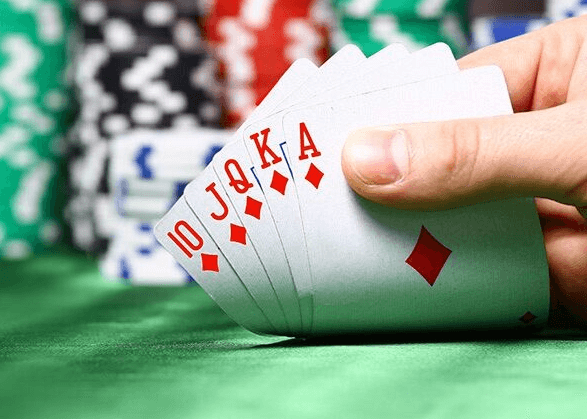Every professional player started as a novice. And when it comes to playing the poker game, it doesn’t matter if you’re a rookie or a professional. All that matters is that you understand the rules and strategies of this challenging game. To help get you started, here are 8 poker tips for teaching you how to play poker.
What is Poker?
Before learning the rules of poker, it’s essential to understand what poker is. Poker is a card game wherein players are dealt cards and then use them to make combinations as they compete against each other. Depending on the version being played, players must make the most profitable combination of cards to win.
Types of Poker Games
Now that you understand the basics of poker, you should familiarize yourself with the different kinds of poker games. Each type has its own set of rules and strategies. Popular poker game variations include Texas Holdem, Omaha, Stud Poker, Razz, and Five Card Draw. For example, Texas Holdem rules can be slightly different from Omaha rules.
Ranking of Hands
The order of hands is one of the most important poker tips for novices. Knowing what kind of hand you have and its value will help you decide whether it’s worth betting on or not. Some examples include a Royal Flush (A K Q J 10 in the same suit), Straight Flush (five cards in numerical order and of the same suit), Four-of-a-kind, Full House, Flush, Straight, Three-of-a-kind, Two Pair, One Pair, and High Card.
Position and Betting
In poker, the “position” refers to how a player is seated in relation to the dealer. It can drastically change your approach to the game, as some positions, like the “late position,” allow you to react to other players’ actions before making your move. It also affects your turn to bet, as the last player to act has more information about the other players’ hands.
8 Guides for Amateurs
Understand the Concept of Aggressive Play and Bluffing.
Aggressive play refers to making big bets and raises to increase pot size. It’s an essential concept in poker since it can help fool your opponents into thinking you have a better hand than they do. Bluffing is also a necessary part of poker, as it’s the art of deceiving your opponents at the poker table by making them believe you have a much better hand than you actually do.
Learn How to Manage Your Bankroll.
Bankroll management is essential in poker. It involves setting a specific amount of money or poker chips aside for playing and tracking how much you spend and win during each game. It is crucial as it helps you manage your finances responsibly so you don’t end up broke after one bad session.
Play with Money You Can Afford to Lose.
Playing with money you can afford to lose is another wise strategy. You may have good luck in the short run, but it’s important to remember that poker combines skill and luck. Therefore, it’s important to play responsibly and never bet more than you can afford to lose.
Familiarize Yourself with Different Strategies.
To become an effective poker player, you need to have a good understanding of the strategies and concepts used in the game. You can learn some strategies by reading books or watching videos. You can also find helpful resources online that will teach you more advanced poker strategies.
Watch Professional Poker Players.
Another great way to improve your skills as a poker player is to watch professional players in action. You can find many live tournament broadcasts and videos featuring some of the world’s best players. Not only will this help you improve your game, but it will also give you an idea of the strategies used by professionals.
Focus on Your Opponents’ Moves.
Focusing on your opponents’ moves can help you make better decisions during the game (whether poker online or in person). Pay attention to how your opponents act and bet, and use that information to make informed decisions about when to raise or fold.
Be Aware of Your Emotions.
It’s important to remember that poker is a game of skill and luck, not emotions. Awareness of your emotional state will help you make intelligent decisions and avoid getting too caught up in the thrill of the game.
Practice Good Etiquette.
Finally, it’s essential to practice good etiquette when playing poker. It means being respectful to your opponents, not using disrespectful language, and not engaging in any behaviors that would be considered rude or inappropriate. Doing so will make your opponents more comfortable playing with you and help create a more enjoyable experience for everyone.
These tips and tricks can help any amateur become a better poker player. With practice and dedication, you can become a master of the game in no time. If you want to practice your poker skills, check out GGPoker and enjoy playing with people worldwide! Good luck, and have fun!

